International Day of Peace Celebrated in the Museum named after Nicholas Roerich under UNESCO Patronage
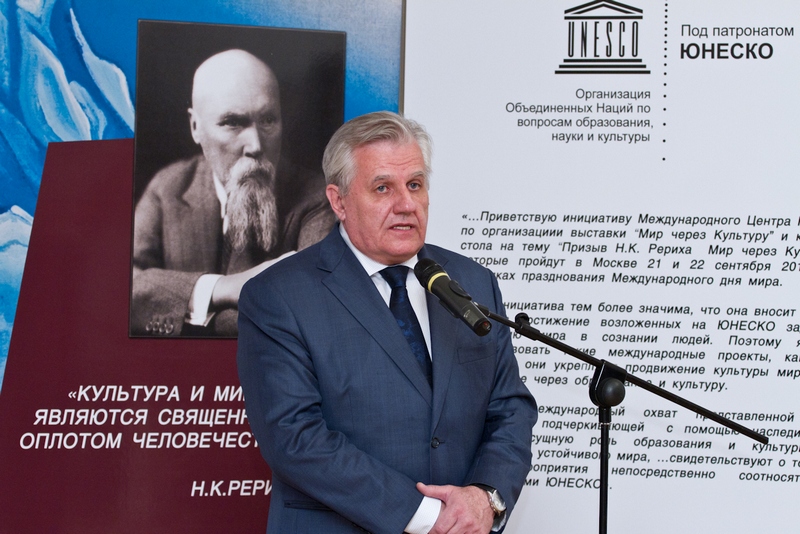 |
The exhibition “Peace through Culture” has opened in the Museum named after Nicholas Roerich within the framework of the celebration of the International Day of Peace. Director General of UNESCO Irina Bokova has supported the ICR initiative to organize the exhibition “Peace through Culture” and the round table “Nicholas Roerich’s Appeal “Peace through Culture” as a Way to Abolish Wars and Establish Sustainable Peace,” which takes place in Moscow on September 21-22. “Noting that your initiative is all the more remarkable by its direct contribution to UNESCO’s mandate to build peace in the minds of men and women, I am pleased to welcome worldwide projects, such as yours, which reinforce the promotion of a culture of peace and its attainment through education and culture,” reads the address of the head of the renowned international organization to the International Centre of the Roerichs.
In his letter the Deputy Minister of the Foreign Affairs of the Russian Federation Mikhail Bogdanov gave a high evaluation and extended support to the ICR initiative to conduct activities dedicated to the celebration of the International Day of Peace. As the high-ranking diplomat remarked, the Ministry of Foreign Affairs is “convinced that in the background of the present international situation the principle “Peace through Culture” preached by such an authoritative organization is particularly timely and relevant.” Considering the significance of celebrating the International Day of Peace in this country, the Ministry agreed to extend the patronage of the Commission of the Russian Federation on UNESCO affairs to the event.
Addressing the guests at the opening ceremony of the exhibition, the Vice President of the International Centre of the Roerichs Alexander Stetsenko noted that 20th century was by far the most destructive in the history of mankind. According to various estimates the past century witnessed 214 armed conflicts and wars including two World Wars. Also, statistics indicates that during the 14 years of the 21st century the number of wars and armed conflicts increased dramatically. According to the data collected by the Heidelberg Institute for International Conflict Research (Germany) the year 2012 alone witnessed 62 wars and armed conflicts. It is almost twice their number in the closing decade of the last century.
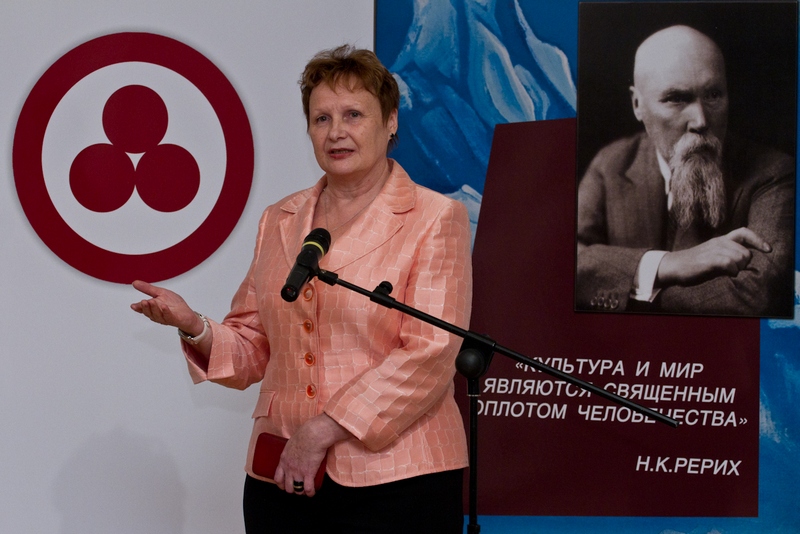 |
The year 2014 will mark the 30th anniversary of the UN General Assembly Declaration on the Right of People to Peace. Therefore, the Right of People to Peace has been offered by UN as a theme of the International Day of Peace. But how can we exercise this right? The incessant armed conflicts testify to the fact that neither political nor economic mechanisms can guarantee sustainable peace. Moreover, they often serve as pretexts for starting armed conflicts.
The great peacemaker, the author and inspiration of the first ever international treaty on the protection of cultural properties known as the Roerich Pact Nicholas Roerich wrote in his articles, essays and diaries in 1930-40s that Peace and Culture are the two pillars of the development of man and society. Without peace there is no Culture, and in order to preserve peace one has to protect Culture. Roerich stated that “All dream of peace, lasting peace. It will never come through international policing. It will never be established through threats and prohibitions. It may originate in human heart, but the latter can be filled with trust only through Culture. Peace through Culture is our perennial motto.”
In the end of 1920s Nicholas Roerich offered heads of states to sign the International Treaty on the Protection of Artistic and Scientific Institutions and Historic Monuments. The treaty was aimed at the preservation and protection of Culture in all its diversity and elimination of war, since by broadening the scope of Culture we narrow the scope of war. The treaty was supported by the international community, whose initiative resulted in a mass international movement for the protection of Culture. In 1935 the above document known as the Roerich Pact was signed by 21 Latin American states.
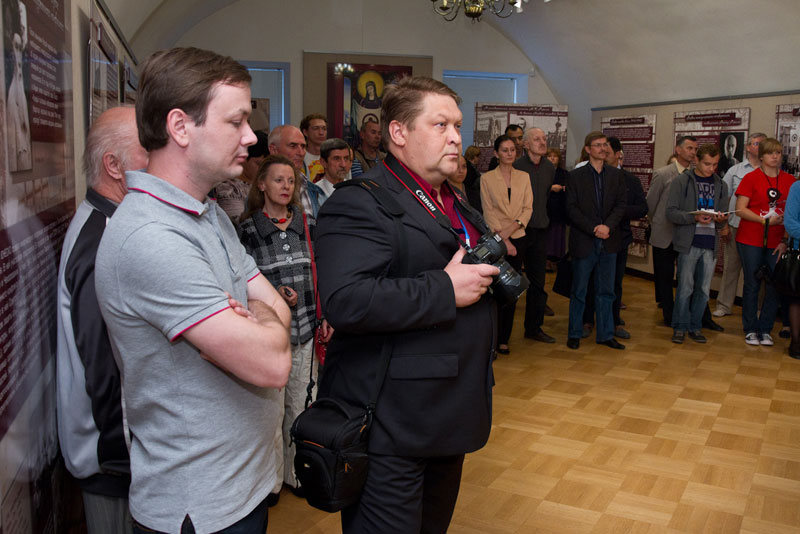 | 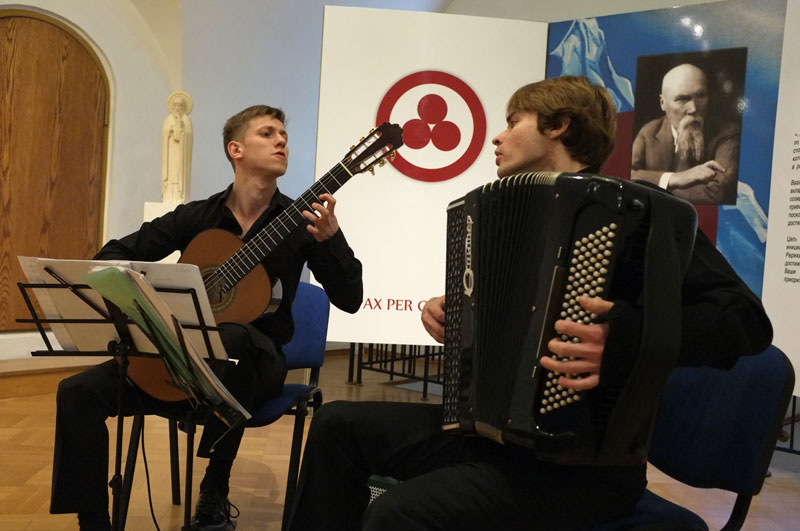 |
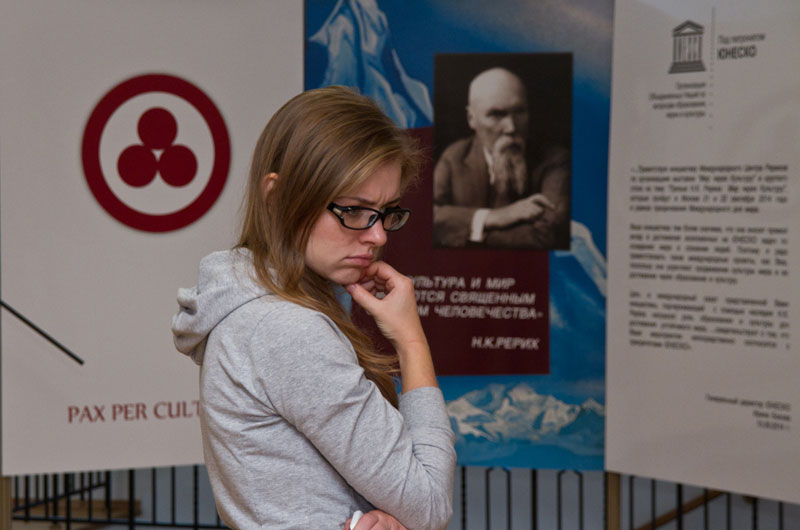 | 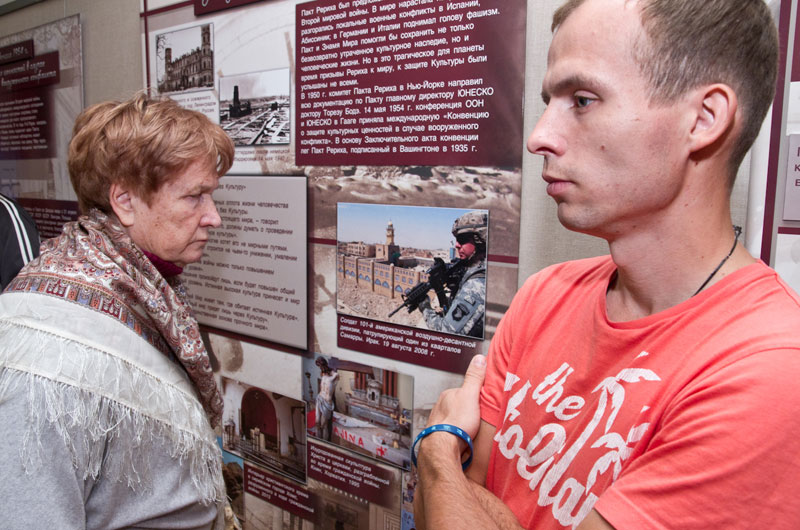 |
On September 22, within the framework of the International Day of Peace celebrations ICR will host a round table discussion “Nicholas Roerich’s Appeal “Peace through Culture” as a Way to Abolish Wars and Establish Sustainable Peace.”
1. Culture as the only foundation of sustainable peace (22.09.14 г. 11.00 -14.00)
- The paper “Social Movement for Peace and Culture” presented by the Vice President of ICR, the First Deputy of the Director General of the Museum Named after Nicholas Roerich Alexander Stetsenko.
- Discussions of the points of the report and the first issue of the Round Table.
Topics of discussion on the first issue:
- Phenomenon of Culture. Culture and Civilization;
- Man as a culture bearer;
- Governmental and non-governmental forms of culture;
- The role of non-governmental organizations in the preservation and development of Culture and Peace;
- Peace and Culture; their role in the harmonious development of the planet and mankind;
- Culture as the basis of peacekeeping;
- The Roerich Pact and its distinctive flag Banner of Peace as a real way to abolish armed conflicts and wars;
- Is modern civilization capable of preventing armed conflicts and wars? (The Hague Peace Conferences of 1899 and 1907, the Hague Conference of 1954 and its two Protocols);
- Culture and Patronage.
2. 1.Education for Peace and Culture (22.09.14 г. 15.00-17.00)
- The paper “Culture as a way of humanization of education” presented by the Honorary President of the International Centre for Humane Pedagogy, Doctor of Psychology, Prof. Sh.A.Amonashvili.
- Discussions of the points of the report and the second issue of the Round Table.
Topics of discussion on the second issue:
- Culture and Education;
- Implementation of Nicholas Roerich’s appeal “Peace through Culture” as a way to cultivate a Homo Spiritualis;
- The role of education and upbringing in the formation of man’s readiness for peace;
- The teacher-disciple cooperation for the sake of knowledge and peace;
- Lessons of peace and culture in school.
Other topics within the framework of the key topic of the Round Table can be discussed.
Among the invitees are:
- Representatives of UNESCO, UNO and other international organizations;
- Representatives of the RF State Duma, Federation Council, RF President’s Council for Culture, Public Chamber, RF Ministry of Foreign Affairs, RF Ministry of Culture, RF Ministry of Education, RF Government, Moscow Government;
- Representatives of governmental and non-governmental cultural organizations;
- Teaching staff of RF universities.